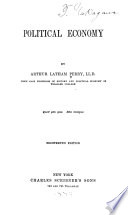 | Arthur Latham Perry - Economics - 1883 - 636 pages
...corporeal and intellectual, acquired by the repetition of one simple operation. (6) The saving of the tune which is commonly lost in passing from one species of work to another, and in the change of place, position, and tools. (c) The invention of a great number of machines which... | |
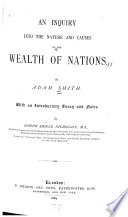 | Adam Smith - Economics - 1884 - 604 pages
...in l>assing from one species of work to another; and, lastly, to the invention of a great num. her of machines which facilitate and abridge labour, and enable one man to do the work of many. First, the improvement of tile dexterity ot' the workmen, necessarily increases the quantity of the... | |
 | National cyclopaedia - 1884 - 626 pages
...Smith to be— (1) an " increase of dexterity in every particular workman ;" (2) " the saving of the time which is commonly lost in passing from one species of work to another;1' and (3) ;t the invention of a great number of machines which facilitate and abridge labour... | |
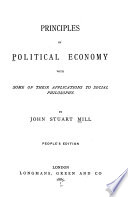 | John Stuart Mill - Economics - 1885 - 626 pages
...three. " First, the increase of dexterity in every particular workman ; secondly, the saving of the time which is commonly lost in passing from one species...•which facilitate and abridge labour, and enable one loan to do the work of many." Of these, the increase of dexterity of the individual workman is the... | |
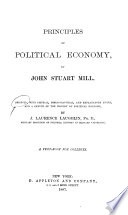 | John Stuart Mill - Economics - 1887 - 736 pages
...three : " First, the increase of dexterity in every particular workman ; secondly, the saving of the time which is commonly lost in passing from one species...great number of machines which facilitate and abridge labor, and enable one man to do the work of many." (1.) Of these, the increase of dexterity of the... | |
 | Richard Burdon Haldane Haldane (Viscount) - Economists - 1887 - 184 pages
...number of illustrations, to be threefold : increase of dexterity in particular workmen ; the saving of time, which is commonly lost in passing from one species of work to another; and the invention of machinery, which enables one man to accomplish the work of many. But how does this... | |
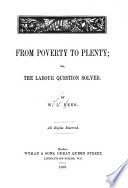 | William Lee Rees - Cooperation - 1888 - 504 pages
...: — " First, the increase of dexterity in every particular workman ; secondly, the saving of the time which is commonly lost in passing from one species...labour, and enable one man to do the work of many." Mr. Mill correctly observes that of these the increase of dexterity of the individual workman is the... | |
 | Cyrus C. Camp - Economics - 1888 - 272 pages
...workman"; "from saving of time lost in passing from one specie of work to another," and " lastly from the invention of a great number of machines which facilitate and abridge labor." 3d. Money renders it possible for labor and capital, through the great channels of commerce,... | |
 | Encyclopedias and dictionaries - 1890 - 870 pages
...efficiency : ' First, the increase of dexterity in every particular workman; secondly, the saving of the time which is commonly lost in passing from one species of work to another'; Officers. Non-com. OfllL'er* •ndHeu. Honx. Omu. Wagons. Divisional Staff 18 68 46 S Infantry Brigades... | |
 | James Edwin Thorold Rogers - England - 1892 - 506 pages
...in other words, " it increases the dexterity of every particular workman ; " in the next, " it saves time which is commonly lost in passing from one species of work to another ; " and in the third place, it suggests the " invention of labour-saving and laboureasing machines." Two additions... | |
| |